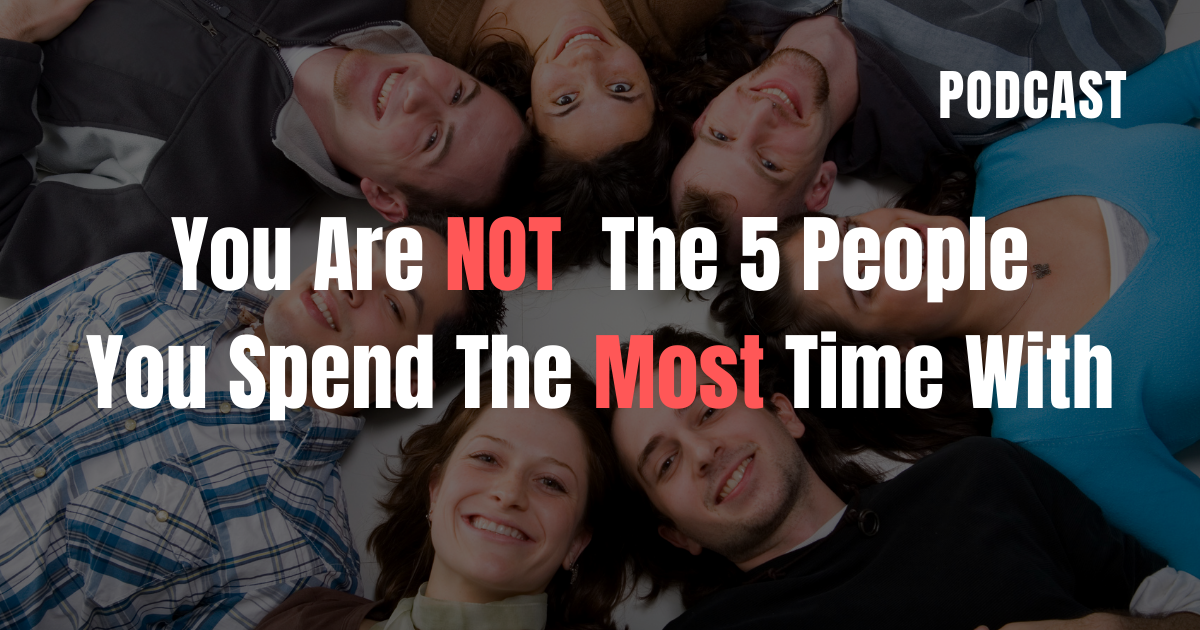“You Are NOT The 5 People You Spend The Most Time With” Brief Summary of Show:
Are you a combination of or influenced by the 5 people you spend the most time with? In this Inspired Action episode hosts Kyle and Christopher discuss our social circles, being connected and disconnected (even in the age of social media, when it’s supposed to bring us together), the influence our social circles have on us, and dealing with loneliness during the pandemic.
Calls to Action:
Tell us your “inspired stories” stories by visiting www.InspiredActionPodcast.ca
Christopher Lawrence LinkedIn: https://www.linkedin.com/in/career-life-coach-christopher-lawrence
Kyle Kalloo LinkedIn: https://www.linkedin.com/in/kyle-kalloo/
Change My Life Coaching & Strategic Leader LinkedIn: https://www.linkedin.com/company/6446498/admin/
Change My Life Coaching: https://changemylifecoaching.ca
Strategic Leader: https://strategicleader.ca
“You Are NOT The 5 People You Spend The Most Time With” Transcript:
‘Cause habitually it’s how we’ve done certain things, right?
Well it is, but I think the point is is that you don’t hire people, you don’t want to hire people who just think like you, you hire people that stretch and grow you.
[Announcer] Is the thought of being imperfect keeping you from taking action? Welcome to Inspired Action for Imperfect Humans. Each week we give you real life stories and thought-provoking research that inspires your soul to live a more fulfilled life through your own actions. From the heart of Calgary, Canada, here are your hosts, award winning coaches, Christopher Lawrence and Kyle Kalloo.
Well, hello and welcome to another fantastic week of Imperfect, and what is it? Imperfect, inspired, imperfect, what is it?
You don’t even know the name of our podcast.
I do, Imperfect Inspired Action.
Inspired Action for Imperfect Humans.
Yeah, that’s what I meant. And here’s the thing. I’m going to take an imperfect inspired action right now.
And say our name wrong over and over and over again.
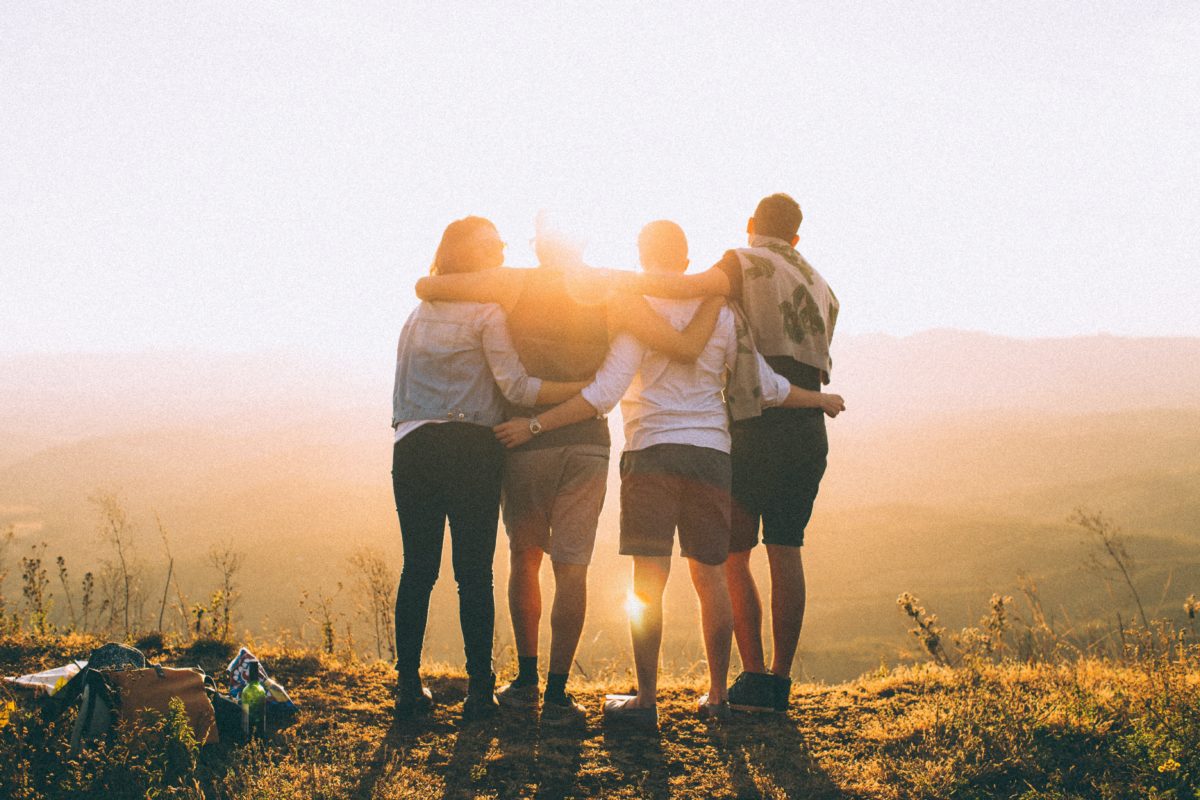
I’m going to interrupt today’s scheduled program to bring up something that I’ve been thinking about. It’s just been top of my head. So while I’m chatting, Christopher, I’m gonna need you to do some quick research. So I know you’re big on research so you’re going to have to do some research while I’m chatting. Here’s the thing. I’ve been seeing constantly TikTok, YouTube, I’m seeing it everywhere. This thing, this notion that we are a combination or influenced by the five people we spend the most time with, right? The people that we spend the most time with, hang out and stuff like that. And I was thinking to myself, hmm, I’m only hang out with two people. You and your partner are the only two people I hang out with all the time.
See but, I hear that, but you, but that would include like coworkers and you know, like it includes everybody. It doesn’t just stop at who you choose to hang out with. You know that, right?
No, I thought it was just I no, no, no, no, I thought it was just the five people you hang out with ’cause well, yes, we do associate a hangout with people that we work.
So for you, it’s probably your roommate because you live together.
Don’t really hang out though.
But you spend time together. It’s who you spend the most time with, not.
I don’t spend a lot of time with him.
Kyle, listen to me for a second and stop interrupting. It’s who, it’s the five people you spend the most time with, not the five people who you hang out with the most by choice, it’s the five people you spend the most time with so that would be your coworkers probably and your roommate.
But I don’t spend a lot of with my roommate. Like sometimes it’s a passing ship because he’s on a different schedule, I’m on different schedule. We’re doing different things. And so that’s really what it is. I mean, but who says it’s, okay, who says it’s spend time with versus hanging out with like, ’cause I’m hearing it all over the place.
Yeah, I think that was, let’s see, David Brown, who was a motivational speaker or Jim Rohn.
Okay.
Sorry, it could be Jim Rohn famously said that we are the average of the five people we spend the most time with.
Okay, I want to know a little bit more about that because the thing I was curious about.
Why don’t you tell me who you actually spend the most time with because I’m going to share something with you and you’re not going to like it, but you don’t like anything I have to say.
That’s not true. It’s been on my mind because here’s the thing. Here’s what I’m noticing. Outside of the pandemic, ’cause it was kind of, I was feeling a certain way, you know, low key. I was kind of feeling a little bit lonely prior to the pandemic and I think since the pandemic it just zasperated, you know? It just really made it-
Is that word?
Did you catch that word? What was that word? What’s that word I just used?
Zasperated. Exasperated. Yeah, I actually felt the same way. I think this is common for business owners, but I think it’s also a common for people right now. Like I think some like, I don’t know, 70 or 80% of people in the ’50s and ’60s and ’70s were in social clubs of some kind, association, social clubs, everybody had a club. And now the it’s less than 30% of people are involved in a club of some kind. And then of course, you know, technology has increased. I’m sure that there is some research that compares technology to community and that kind of thing, particularly social media, which for me, I have found to be, you know what I’d like to call anti-social media because-
Yeah, we’re more disconnected than connected.
I was like, where was I? I was standing outside somewhere waiting for something and I was floored at that, it was beautiful outside, I was floored at the number of people who were just staring at their phones.
Yeah, well we saw that even a park, right? People were just all hanging out, but they were all on the phone.
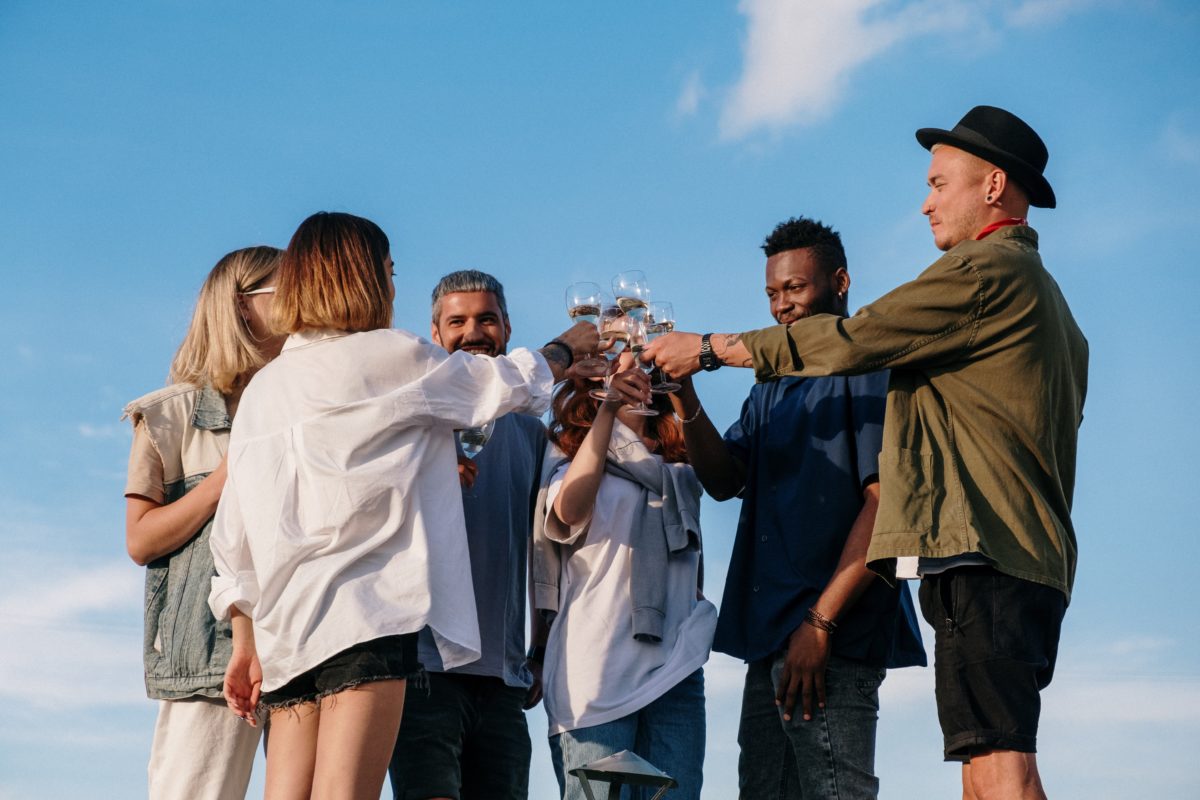
COVID did expose it for me too though, because I like, you know, we talk about like first circle, second circle, third circle, forth circle, you know like, your first circle is like your tight close, close, close friends, the people that is just like you can call any time or family. It’s like, you know, it’s the people that you spend the most time with kind of idea. And then second circle would be like that kind of what I would call like a close knit group. But you know, maybe it’s like your games night week or your sports team.
You may not hang out all the time, but you do hang.
You kind of rally as a group. And then you have your third circle, which would be like, you know, maybe like a church or like-
An association of some sort.
Like maybe you all go to the same church or something. And then, but second circle would be like the subgroups within that church, right? So, and then fourth circle would be like, we’re all Canadians and so that means, you know, like so we rally together for that. Although Canadians are not very nationalistic, like we don’t have that same kind of pride about our country that our neighbors to the south do. And it’s not that we’re not proud to be Canadians. I would just say that we’re not nationalistic, meaning it’s like, I don’t know.
Yeah, yeah, yeah. You be careful because I, that triggered me to go to another place because, you know, I remember when I was there, it was like, who had the biggest flag, but they did nothing with the whole unity of it. But anyway, that’s another story. I think as Canadians, we do have that, you know, surface level, I don’t know what that is, but let’s just go back for a second. I think it’s the second circle that I’m looking to expand.
Yeah, me too. It feels missing in my life. Like I feel like I don’t have that kind of like that club, that social club that, and I find that there’s a lot of elitism. Excuse me, I’m going to go off on a tangent here. I actually-
As long as it’s not off me. As long as it’s not off me.
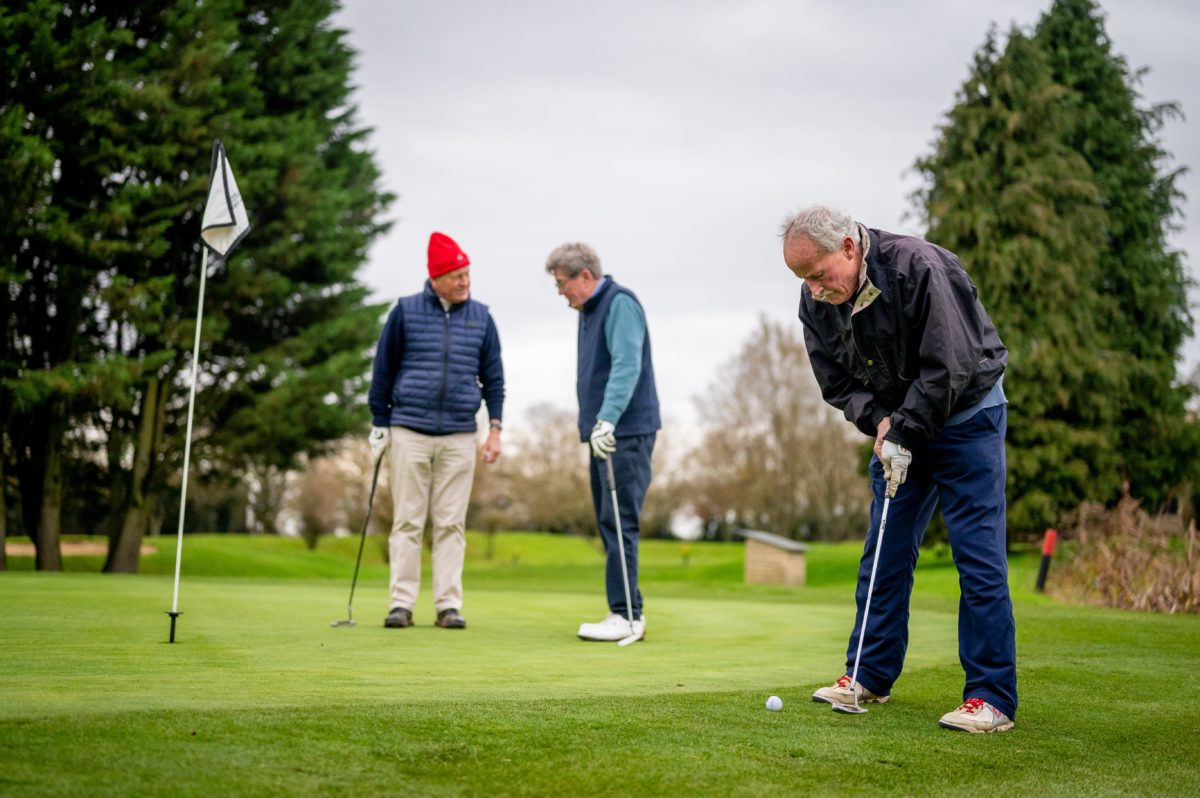
I get hate mail for this. So I’m just doing a bit of research because there’s this thing with golf in our city and it’s amazing because the people that I know that golf, it’s very interesting because if I have a joint venture partnership with them, they constantly miss their commitments. Whether it’s a joint venture partnership or some kind of thing, they constantly miss their commitments for golf. And I get it now.
For golf, meaning to go do golf and stuff?
Yeah, to go play golf. And I get it now because the memberships where we are to play, you have to like commit like $5,000 to spend on the clubhouse, plus like 20 to 40, sometimes $50,000 to play for the season.
Whoa.
And it’s like you think about like who’s playing golf that you know, think about it for a second.
Yes, I do.
And so what I realized, so excuse me, I’m going to be really rude and there is a gray area here, but it’s triggering to me. I feel like a lot of where my second circle would fit, lots of them are golfers and it’s actually elitist. And I say it’s elitist because you have some of the most beautiful green spaces in our city are golf courses and they’re not accessible to the public. And then when you look at like, look at, we were out yesterday on a bike ride and everything was packed because, you know, and then I look at how much space these golf courses have and I’m just like this is bullshit. They should all be public access.
You’re totally right. You’re totally right ’cause even, okay, you know, but here’s the thing. So one can say it’s because they’re paying $50,000 each, whereas the government doesn’t, a government space doesn’t spend that amount of money in these parks to make them so pretty and nice and lush and all that other stuff. I don’t know. And I think that’s where the elitist thing. I want to start you on that because you really attacked me yesterday about that whole elitist thing because that’s another conversation and I’m not saying it’s not happening, I’m not saying it’s not happening.
It is happening.
I’m just simply saying-
How many black people do you see on a golf course in Calgary? How many First Nations? How many Middle Eastern? None, they’re all white.
Yeah. Well, listen, before we take more imperfect inspired action with that conversation, let me come back to my second thing. Like what’s up with my second circle? How were people actually growing that? How do people mean people right now? How do people? I was so, when I was younger, here’s the thing. When I was younger, I was so mindful of my time because I had a lot of things, I had a lot of commitments, I was on a lot of association stuff, I was volunteering for a lot of different things, right?
Yeah, me too.
So when it was my time, I was so protective of it because I was out there doing, shaking hands, kissing babies, all that time.
Yeah, I was on boards and associations.
Yeah, I was so protective of it to the point where I’ve gotten probably really good at protecting my time that I feel I’m missing that second circle where I can engage into other things.

Well, I wonder if some of that has to, I don’t know, I’d like to hear from non-entrepreneurs on this because I already know, and certainly from entrepreneurs, but I already know the entrepreneurial story. With entrepreneurship, you actually don’t have a lot of free time and it is a very lonely path for sure. Like we work a lot, you know, and so it’s interesting ’cause I think that that’s really what took me out of it. We were both part of a networking group and I think I had a bit of second circle community there, but it didn’t kind of get to that like deeper level. Like I wouldn’t say that it’s like, like if somebody was struggling in our network-
It’s like three, two, three, two.
Yeah, exactly, it was like three, two, exactly. Second circle, third circle. But on the edge of second circle, because it’s like, if somebody was struggling, it’s not like we really rallied together to support them.
Totally.
You know, like maybe a church group would do or, you know, and I know that lots of people rag on churches and I would just say redefine what you think church is because there’s so many different kinds out there. And there are some that are not religiously based at all. And the only reason why I say that is because I think church was a natural gathering place and the place for second and third circle communication, or first, second and third circle interactions and there is a rallying of support potentially if one of your community is struggling. It’s like the community is there to help them.
Well look at what recently happened, that craziness that happened in London, Ontario, and the community just jumped in right away. The community-
You’re talking about-
The Muslim family that got, you know, killed on the sidewalk as some terrorist, or whatever they’re calling him, you know, kinda drove them down, but all the stuff I’ve seen or watched the community, their church, their, you know, their belonging, like, boom, everyone just, you know, just jumped up to it and just started to take care of things. Take care of the family, take care of the social media.
We have had some Islamophobia and some people say that that’s not a real thing, but I don’t know. We have had some of that in Canada, although not nearly as much as our friends to the south, but we still have it here. And in this small town, I think it was a Northern, was it Northern Alberta? This was a couple of years ago. Somebody, there was, it was when that shooting happened at our nation’s Capitol and they killed some of the, you know, the police and guards that were at the Memorial as well as at Parliament. And then there was this thing, there was this mosque somewhere in Northern Alberta that people wrote go home on it. And it was funny because the rest of the community, so white people, went and got paint and painted over it.
Brilliant, yeah. Ooh, that just gave me goosebumps.
So that the Muslim community didn’t have to see it. So it’s very interesting. I think, you know, I think about that and I think, you know, the more, and you look at it, like, I think you’ll see more and more of this, the more we separate from each other, the less we socialize. So I think about my five people and it’s like, well, lots at work, certainly my husband, certainly you and then I have another friend and I look at the diversity of it, so even though we’re a team of eight, we have a lot of diversity in our team. We’ve got people with mental health issues. We’ve got people, mental health issues. What would be the PC way of saying it? Whatever, they’re neurologically different, I guess. I don’t know what the PC term is, but I liked it when I heard it anyway. We’ve got men, we’ve got women, we’ve got people, we’ve got immigrants, you know, brand new to Canada. Like we have a lot of diversity, tons of diversity. And then I look at my friends’ group.
Even my list, half of them are me, right, is that what you’re saying?
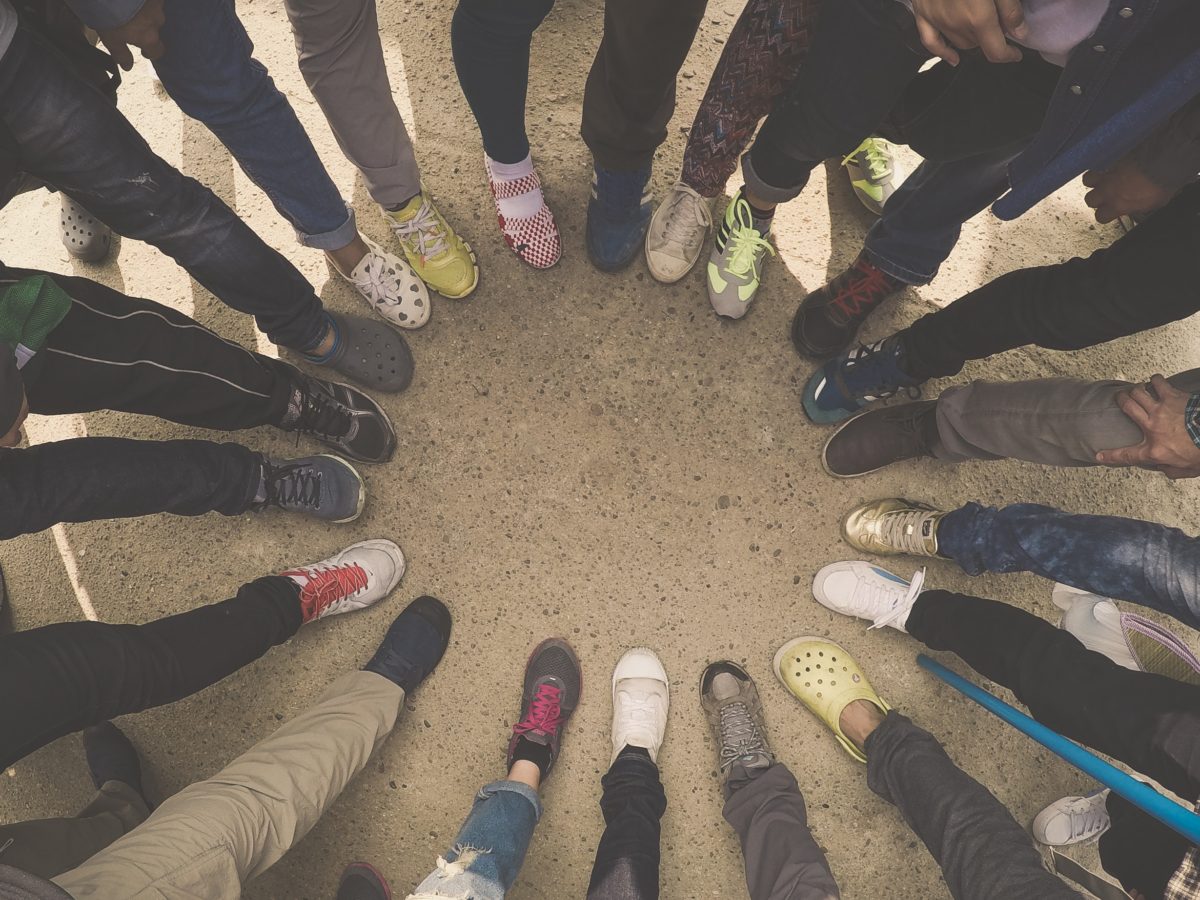
Yeah, not just you though, that’s the funny thing, right? Like, and then we’ve got, you know, and we’ve got every age group, like we’re very diverse. And I think that that’s an important part of it. I look at my inner circle, so I have you and I have Vincent and I have my friend, Sarah, who her heritage is Middle Eastern. And so I look at this and I’m like, and Irish actually, I think. And so it’s interesting because I look at the diversity and I think that that’s a really important part of it is the diversity of that because I think it does open our minds and mindsets so that we’re not so narrowly focused on a singular group of people. I also think by having groups, like you look at it, look at the people who’ve been craving groups, craving groups, craving groups, craving groups. And then they go to some like cult leader zealot because they finally find that second circle connection.
Right.
And it’s like, okay, but what’s holding that space in place of crazy?
And we hear that even, I’ll come back to another point that I had right away, based on just what you just said about, and I’ve said this growing up, I’ve always felt when people were blaming gangs and I said, gangs or terror group, they’re holding a space for something because for people to even do those things, there’s something going on.
There’s a need. There’s a need that needs to be met.
Regardless of what they’re doing, they still felt belonging. And they’ll hear that, we’re family, they’ll jump up. They’ll never feel alone because you know, these are things, that’s how it it’s able to happen. So I think you’re onto something there when you say that, regardless of what you think about those groups, they’re holding a space for something. I want to go back to what you said about the diversity about even from our team, like the innovation that we get when there’s an issue or a problem or troubleshooting, or even just looking to expand what they bring to the table. Just either, here’s what we’ve done in our country.
They don’t think like us.
Here’s what we’ve done, here’s what my parents have done. It’s just all so different, right?
I love that. It challenges me sometimes. Sometimes I’m triggered and I’m just like, that’s not a Canadian thing.
Because habitually it’s how we’ve done certain things.
But I think the point is is that you don’t hire people, you don’t want to hire people who just think like you, you all hire people that stretch and grow you.
So many people think that way, hire just like me. And I’ve often said if you and I are doing the same thing, one of us is not needed. How are you going to either expand or-
And it challenges.
Those limitations that we have because we all have it, right? There are certain things that, you know.
Well, I don’t have limitations.
He’s really good at. And there’s certain things that.
Well, I don’t have limitations. I know that everybody else does, but I see what you’re saying, like I can kind of understand.
I say this often. Let me just get this one point out. I’ve said this often, I will say it for, probably for the, even if I have dementia, I will still say it only a mother can love you, really only a mother.
Oh, what a horrendous thing to say to a person.
You make it hard to love you sometimes and so only a mother is obligated. I’m just saying.
Oh my God.
I appreciate you. I appreciate what you do.
He calls my mom Y2 because both of our moms are named Yvonne.
Yeah, so we know that the second one.
It’s not the same Y2.
All right, so tell me what’s out there. What are the people saying?
You really are a piece of shit sometimes. Anyway. So here’s something, so we’ve got a few minutes left. I thought maybe I could just kind of look at this ’cause we do hear this. We say, you know, you are the average of the five people who you surround yourself with. So this is just a quote from Jim Rohn, not John Rim.
I was gonna say, okay.
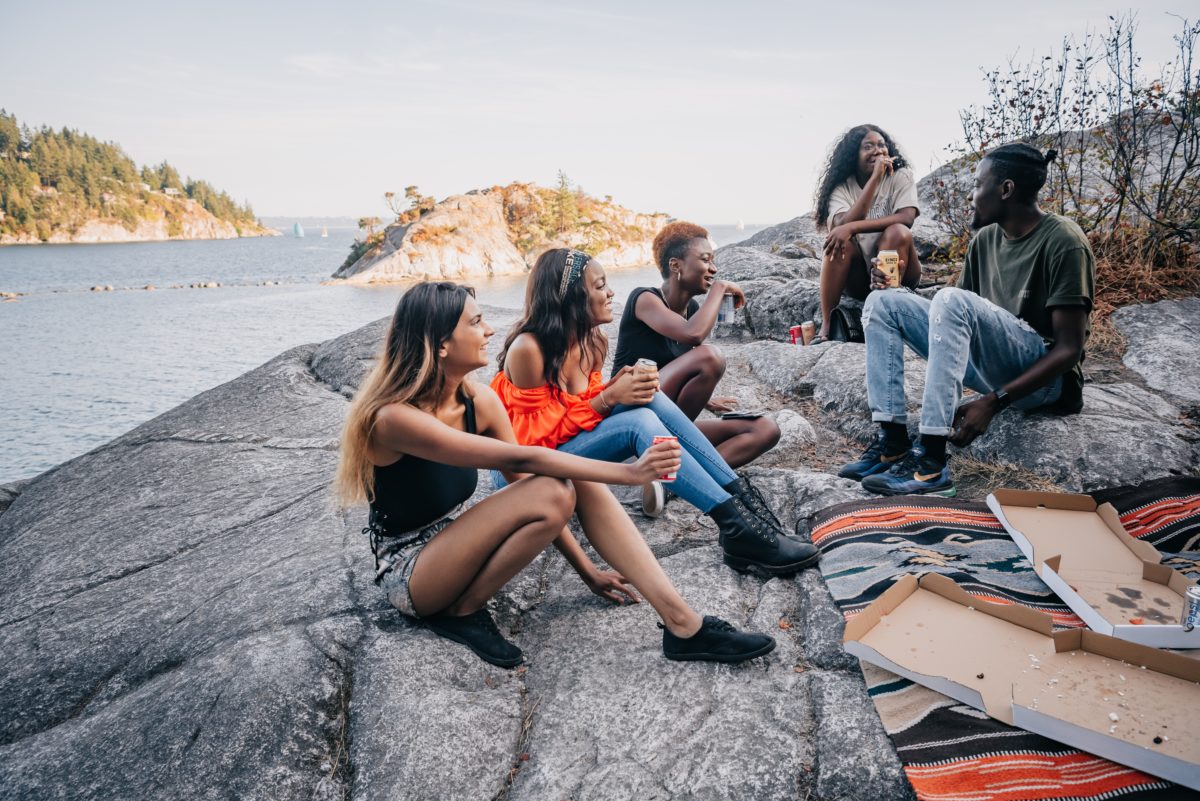
And there’s something similar, it’s like show me your friends and I’ll show you your future. And actually the research says that there is, there is nothing that actually ties to that, but the concept is correct. It’s just that you are not the average of the five people you spend the most time with, so here. So here’s a couple of points that come up. You are indeed influenced by the people around you, but that influence doesn’t stop anywhere near the five people you spend the most time with. It’s more dispersed and it includes people you haven’t even met.
Oh.
So this would be like social influence, right? So social influence. So think about it first a second. Let’s say you get on a bus and the bus has 10 people on it and nobody’s sitting. When you get on the bus, do you sit?
No.
So those people have influenced you, right? So this is the thing. And it’s funny because when people don’t fallow, because there are some people who just kind of beat to their own drum, right, and they beat to the rhythm of their own drum and move to the rhythm of their own beat, well, whatever, anyway, we suck. We always screw this shit up.
Do you see where things just enter our brains?
They don’t enter, it’s more like it kind of gets stuck on its way out and trips all over itself. Anyway, so here’s the thing, actually, you are influenced by just about everybody and everything. I want to talk to you about data.
Okay.
Around the effects of family members and friends on something fairly easy and objective.
Okay, stick a pin, stick a pin.
This is important. Why are you always trying to poke me with something?
That’s a very Caribbean, I think is it only in the Caribbeans who say that? Stick a pin meaning like you put it on the dot, like you just hold it, right?
Yeah, hold that on the bulletin board for a second.
That for a second. Back to the piece about your influence. Sometimes I think, back to the piece, I said, sometimes it’s about, I think culture, culture, culture plays a role in this cultural, you know, differences sometimes play a role. One I often say is if you go right now, if you see a group of black people together and one person starts running, everyone starts running. I don’t know why. Why is that? Why would everyone starts with running? But then if you see a group of others.
So now I want to, I’m not going to do it today, but we should actually look to see if that’s just a stereotype or if there’s research on it.
I’ve seen it time and time again.
White people don’t even notice that. It’s just black people that notice it. It’s like one black person starts running. I did see a social experiment. Now it was just a social experiment. It was a pop culture thing, it wasn’t good research, but it was funny because they, this group, you know, this group of people did go running and most, not all of the black people, turned and ran.
Right, exactly.
Most, not all, of the white people stood still and went.
What’s happening, what’s happening? This is why you don’t see black people in these haunted house things, these trailers, these movies ’cause we’re not gonna-
What did you call it, a triller?
Is someone here? What is that word?
Thriller.
Thriller, that’s it. Anyway, that’s another story we have to unpack that later on because I think back to this influence, I think some of those things happen. It’s just, I don’t know, is that DNA? Is that influence? But I hear that often, I see that often. If you take one person starts running, there’s a certain group will run with you and then the others, we just know. It’s like the animal world, they just know. Some of them just know to.
Yeah, it has kind of that herd mentality. That’s interesting. I wonder if white people had that bred out of them.
Can we do a podcast on that? There’s gotta be some research on that. We need a scientist, though, like a real scientist.
Go ahead.
So they actually looked at friends and family and the influence of that on obesity. So here’s what the research says. If a friend of yours become obese, you yourself are 45% more likely than chance to gain weight over the next two to four years.
Okay, that makes sense to me mentally, intellectually that makes sense to me. The question is, is that the same, if someone who’s obese hangs out with people who are stay fit, eat differently.
I don’t think it works the same way.
Why?
So more surprisingly, Christakis and Fowler, those are the researchers, found that if a friend of your friend becomes obese. So meaning let’s say that you and I are normal weight.
Second.
But your friend Andrew out in Toronto becomes obese. My likelihood of gaining weight increases by 20%.
What?
If I don’t know that friend of a friend, the effect continues one more person out. If a friend of the friend, if a friend of the friend of your friend develops obesity, you are still 10, so meaning if Andrew’s friend.
Yeah, yeah, yeah.
Gained weight, you’re still 10% more likely than random to gain weight as well, meaning it goes beyond random. So this to me talks about maybe this has to do with like mirror neurons, or maybe it has to do with like, just the way conversation shifts, but I think that’s very funny. So your friends do make you fat, but so do their friends and so to their friends of friends, and there is nothing that suggests that.
Oh, man, everything’s gonna make us.
There’s nothing that I’m reading that suggests that it’s reversed. So because they had data spanning over three decades, they were able to show a real cause and effect relationship between individual friends and friends of friends and weight gains. While the researchers looked for a variety of explanations, the most likely one appears to be norms. If your friend is obese or friend of a friend is obese, that changes your perception of what is an acceptable body size and your behavior changes accordingly. So I wonder if you would, they said you didn’t know the friend, but would you have to see the friend.
There’s gotta be something that triggers that.
It would have to be, and then they talk about similar effect. They talk about the similar effect with smoking. So it’s very, very interesting to me because if you look at the issue of obesity and it is a failing, we are failing at it in North America, well, all over the world, actually, it’s not even just North. There are still people who are hungry and starving for sure. And that’s very sad, but actually more of our world is overweight.
Is obese than.
Than is underweight and underfed. So I don’t know, that’s interesting.
And so they talk about that with obesity, but I do wonder about other influences.
And so, with that said-
In this article, they don’t talk about the positive.
So with that said, we don’t have tips for you because we’re looking for those tips this week, and I want to know, how are you guys expanding your second circle? What’s happening in your second circle? You know, how are you staying connected? I really want to know, cause I don’t know, I want to actively expand my second circle. So if you know anyone or you have tips and tricks, is it association? Is it clubs? Heaven forbid, is it the golf club? You know, golf course. Let me know, like, what were you doing? Were you smelling your shirt? Like, what was that about? You’re still on camera, right?
Sorry. I forgot. I wore this in front of a fire pit, but it’s been washed, maybe my washer didn’t do a good job because I kind of smell like smoked pork.
So the fire pit influenced your clothes, is that what you’re saying? Anyways, guys, this week, I told you, we’re gonna off the rails this week.
What’s inspired action?
We wanna know what your inspired action is.
I think your imperfect to inspired action is to look at your second circle, look at your next level of community. What do you have? What are you doing? How are you building it?
[Announcer] It’s our goal to build a global community of inspired action takers and we can only do that with your help, so if you love inspired action, please leave a review on your favorite podcasting app and share us on your socials. You’ve heard from us, now we wanna hear from you. Go to InspiredActionPodcast.ca and tell us what is the inspired action you took this week? Next week on Inspired Action for Imperfect Humans.
The more emotionally granular we can get, the more flexible are thinking is.

